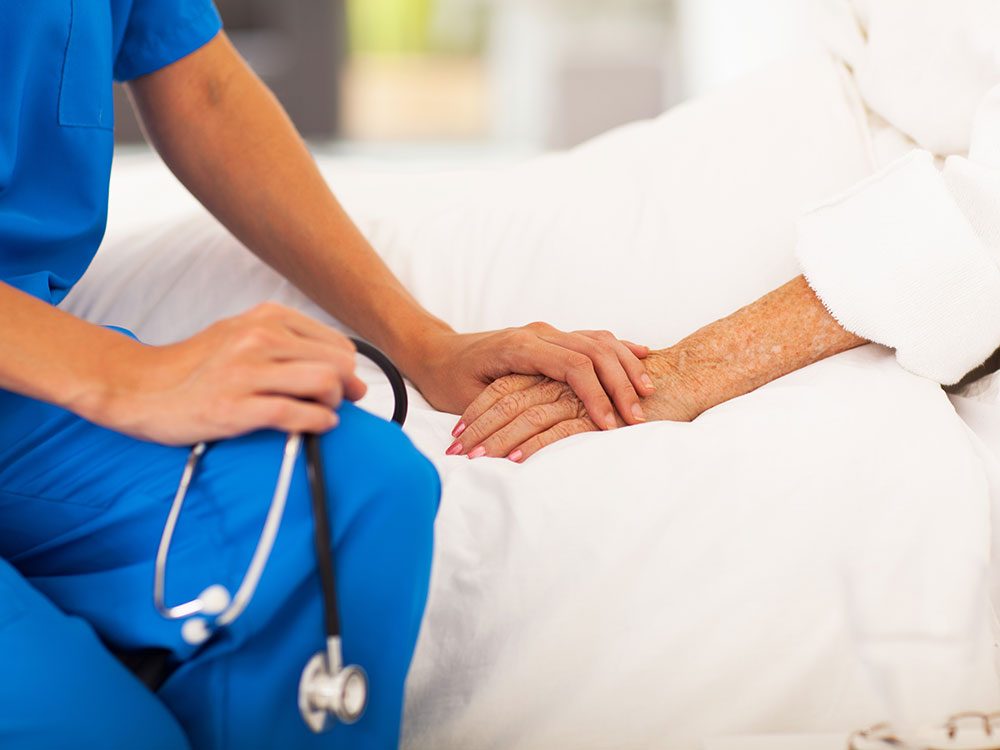
Fall Prevention Tips You’ll Wish You Knew Sooner
Each year, nearly 30 per cent of adults aged 65 and older experience a fall. Resulting in injuries that can range from minor scrapes and strains to fractures and concussions (and even worse), these falls send more seniors to the hospital than any other type of incident. It’s possible, however, to reduce the risk of a serious fall by taking a few preventative measures. Here are some of the most simple—and effective—strategies to safeguard against falls.
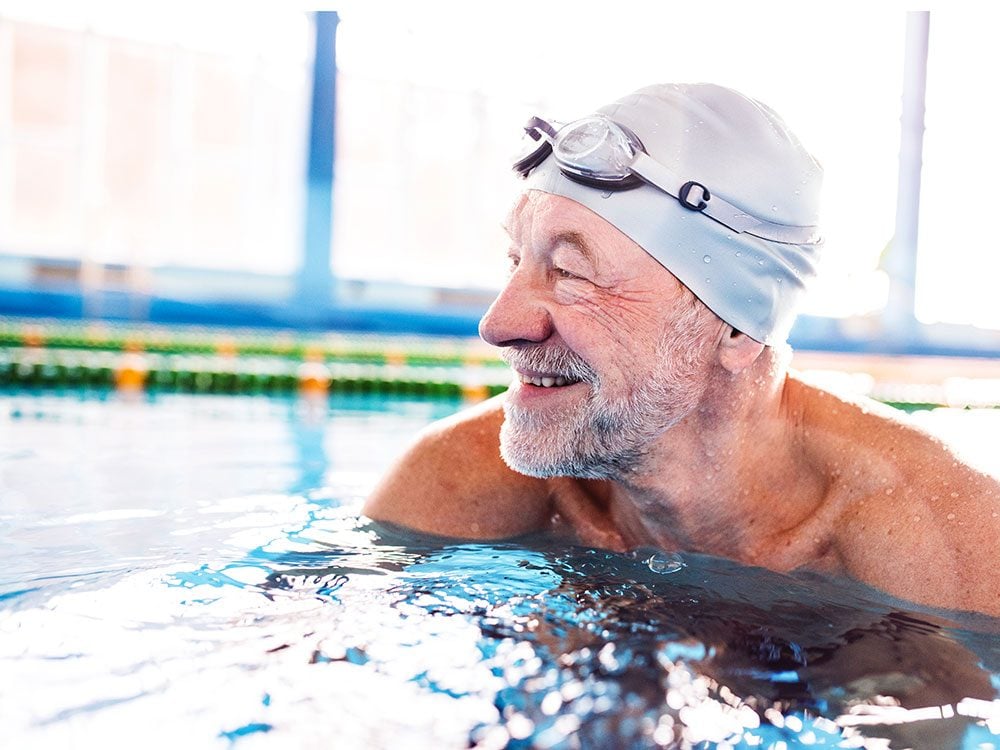
1. Stay Active
One of the best ways to prevent a fall is to stay active. By moving more, you’ll maintain (and possibly improve) your strength, balance and flexibility. With your doctor’s approval, consider exercises and activities like Tai Chi, yoga, dancing, walking or strength-training to increase your overall fitness and reduce the likelihood of falling. Check your local YMCA or senior’s centre for fall-prevention exercise classes, too.
Here are some of the best workouts for seniors to build strength, improve balance and boost heart health.
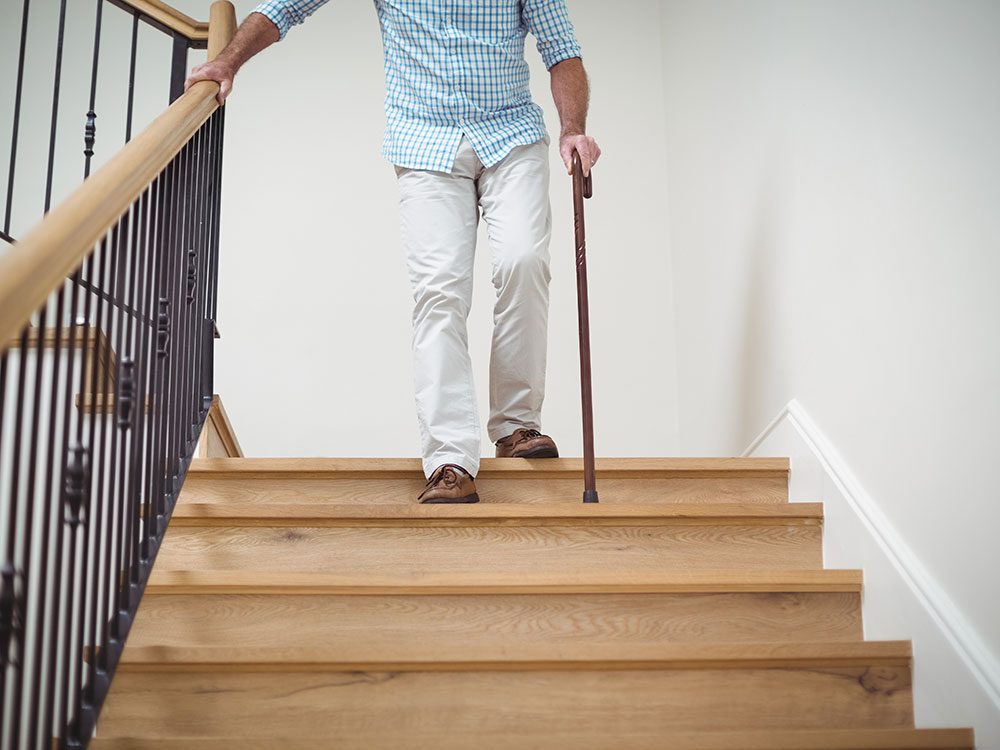
2. Change Your Footwear
Improper footwear—including high heels, flip-flops, slippers without a backing and nylons with slippery soles—can put you at risk for a serious fall. Opt for properly-fitted footwear with non-slip soles, and make sure they’re secured to your foot. You should also follow this advice if you want to avoid sore feet.
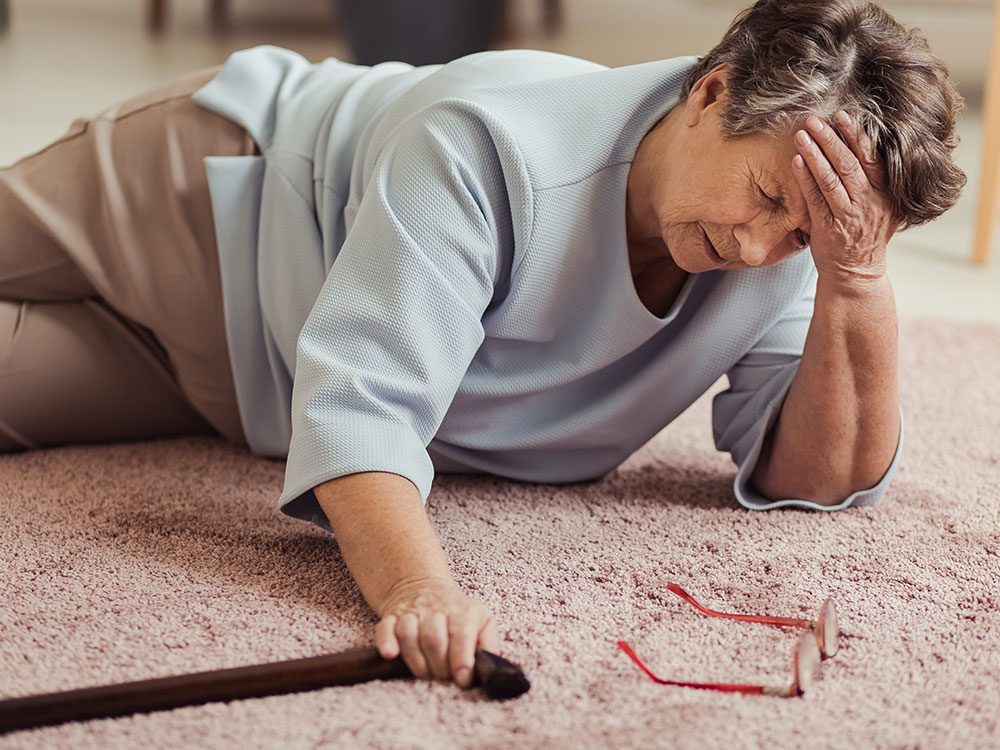
3. Eliminate Home Hazards
Fifty per cent of falls take place in the home. With that in mind, it’s important to keep heavy traffic paths as clear as possible, eliminating obstructions along the route between your bedroom and bathroom, and along all hallways. These obstructions might include tripping hazards like:
- Phone cords
- Electric cords
- Houseplants
- Doormats
- Area rugs and runners
- Footwear
While you’re at it, you may want to consider the following:
- Fix loose or cracked tiles, floorboards or concrete that are tripping hazards
- Put non-slip mats both inside and in front of your bathtub or shower
- Re-arrange cupboards so that frequently-used items (clothing, kitchen utensils, ingredients) are always within easy reach (reducing the need for a step-stool)
Find out why Qualicum Beach, B.C., has become a paradise for seniors.
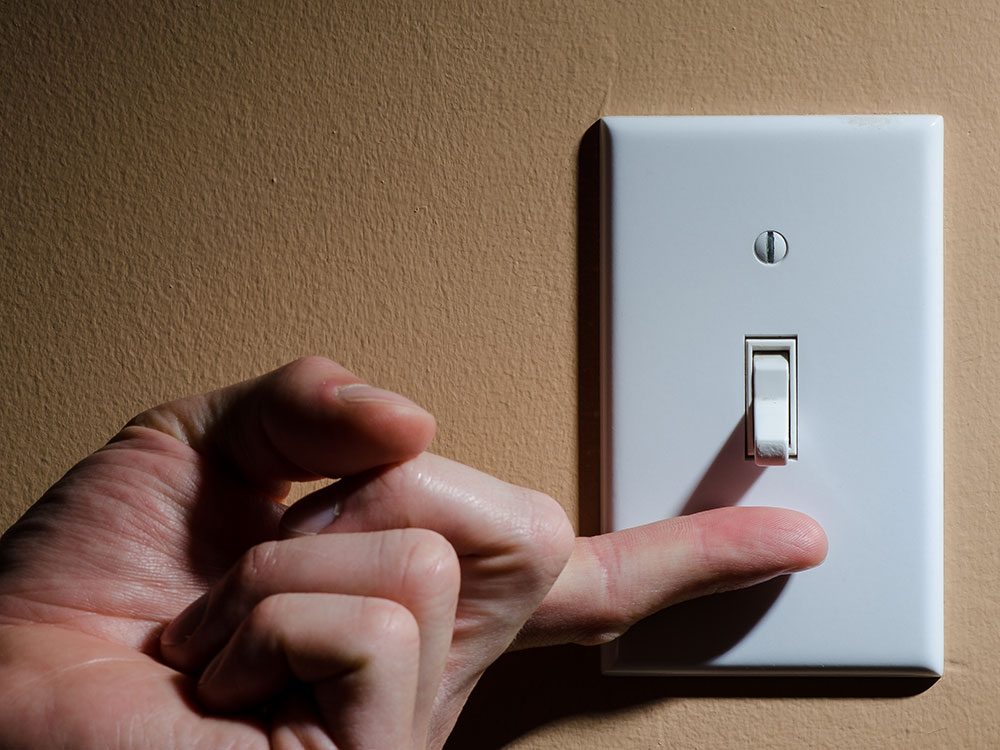
4. Brighten Your Surroundings
No matter what your age, it’s hard to maintain your balance when there isn’t enough light to see properly. Make sure hallways, stairways and stairway landings in particular are well lit, night and day. You might also consider adding:
- Motion sensor night lights along your home’s traffic routes
- A lamp on your nightstand with a switch that’s easily reached while you’re still in bed
- Glow-in-the-dark light switches, which are easy to find at night
- A flashlight in several places throughout the house (including the nightstand, kitchen and bathroom).
Find out how this B.C. singing circle is transforming the lives of lonely seniors.
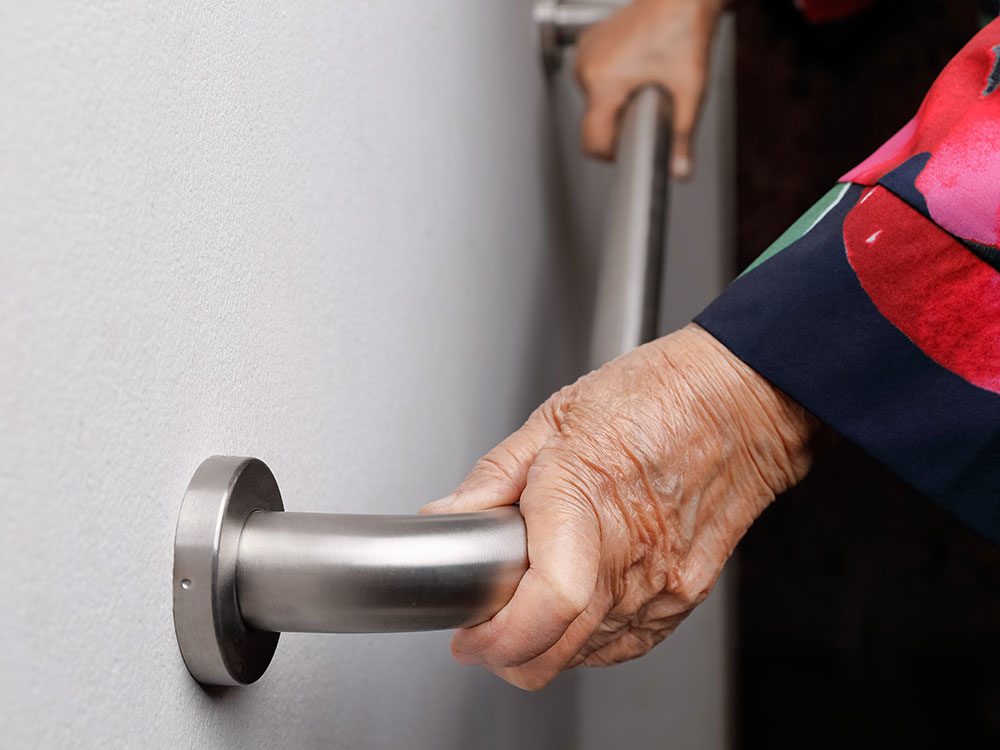
5. Make a Few Home Modifications
There are plenty of home modifications and assistive devices that can help you keep your balance and reduce the risk of a fall. Some of the most popular include:
- Adding hand rails to all your interior and exterior stairs
- Installing grab bars in your tub, shower and by your toilet
- Installing a raised toilet seat
- Installing a seat in your shower
- Investing in a walk-in bathtub with a low step threshold
- Using a cane or walker
- Adding non-slip tape to wood stairs and steps
Already suffered a fall? Here’s what you should know about post-fall syndrome.
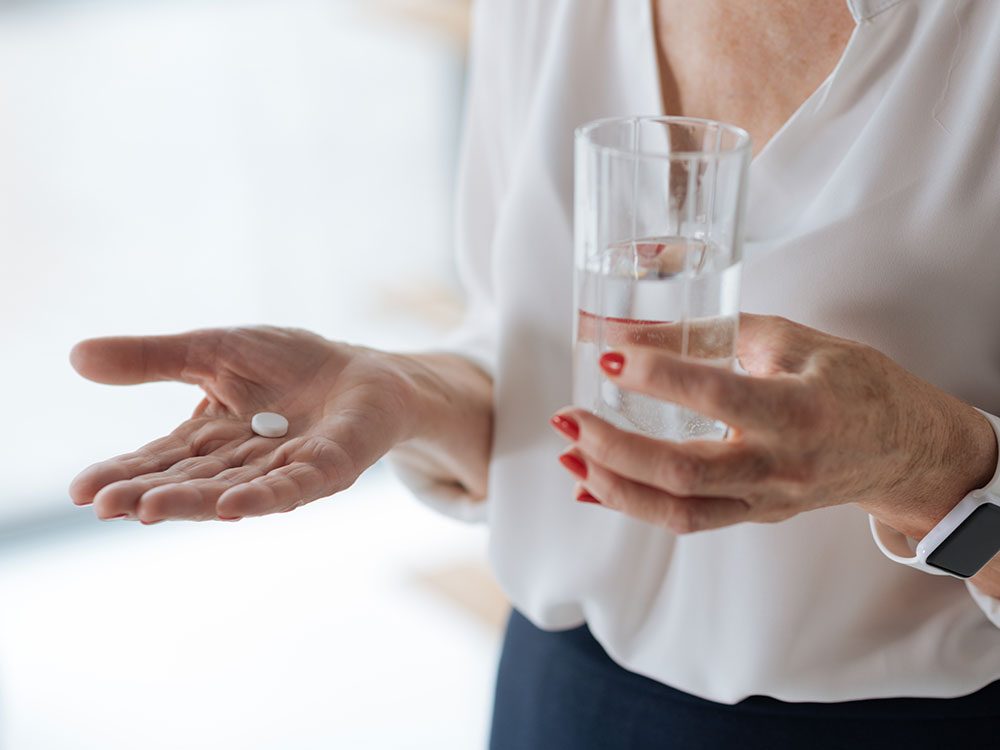
6. Dial Up the Vitamin D
Research has shown that vitamin D supplementation correlates with a reduction in bone fracture rates among seniors. What’s more, the recommended dosage of 800 to 1,000 IU’s can also help increase muscle strength and balance, reducing your risk for a fall in the first place.
Recovering from an operation? These are the best vitamins and supplements to take after surgery.
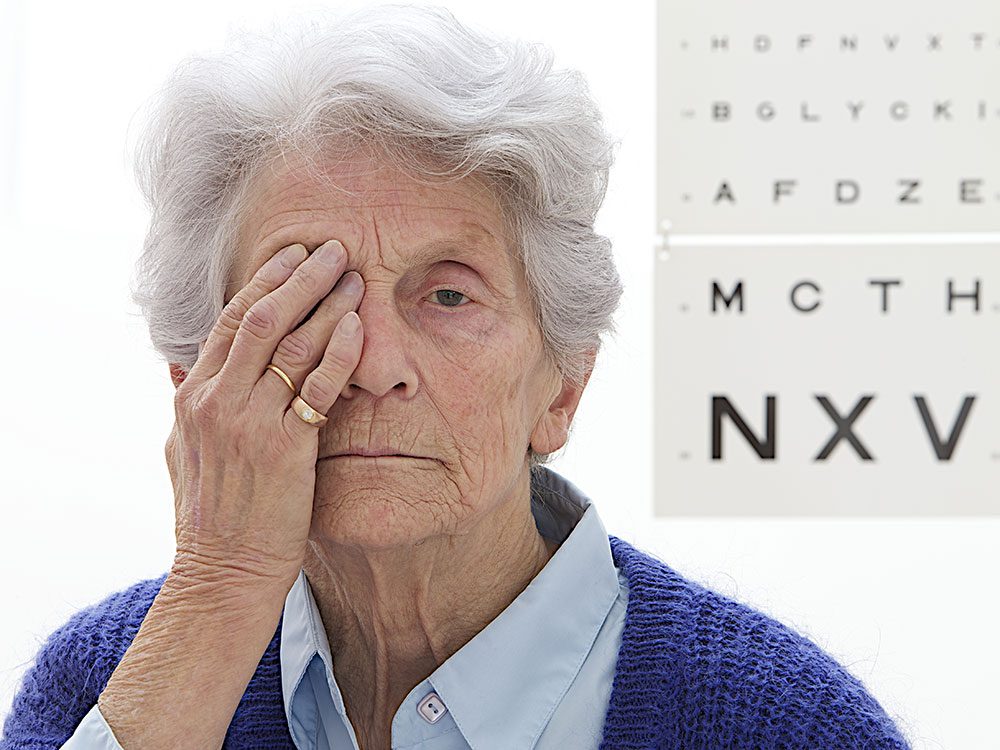
7. Get Your Vision and Hearing Checked
If you’re over the age of 65, you should get your vision tested every six to 12 months. This is especially true if your eyesight has been deteriorating over time. Poor eyesight substantially increases your chance of tripping over everything from curbs to carpets to wires.
Age-related hearing loss usually begins at age 60. It’s recommended that older adults get their hearing checked at least once a year. Poor hearing can be associated with a declining “vestibular function”—the balance mechanism of the inner ear that helps with your equilibrium and spatial functioning.
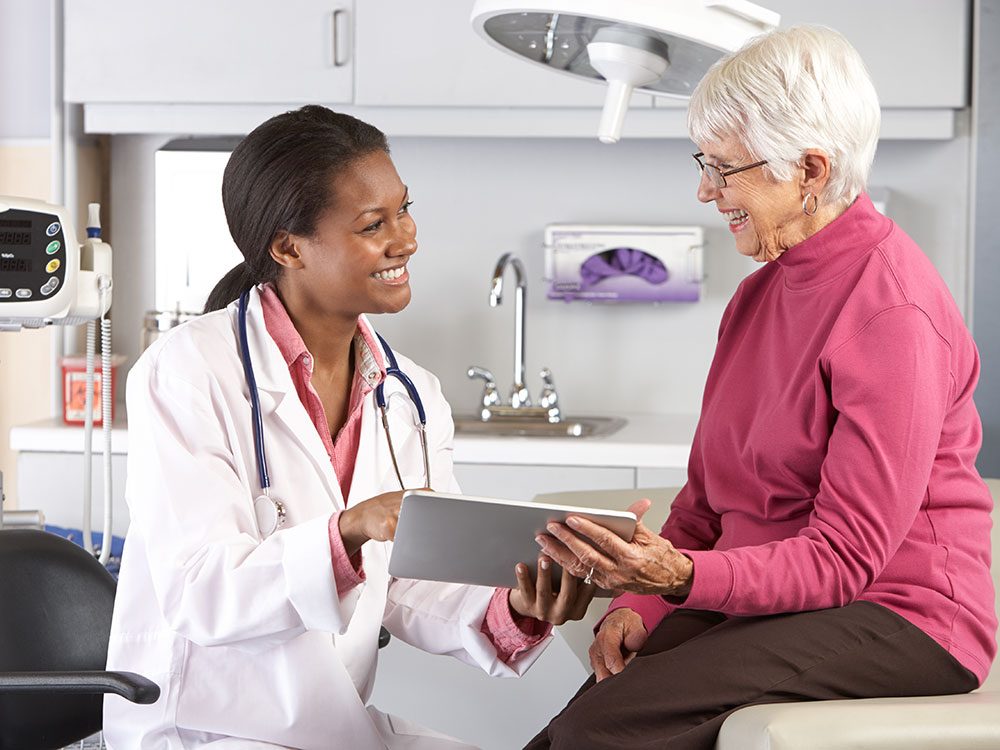
8. Open a Dialogue With Your Doctor
You should visit your doctor at least once a year. Many falls are a result of dizziness caused by health issues like high blood pressure or low blood sugar levels—both of which can be alleviated with the right medical treatment. If you’ve had a recent fall, are afraid of falling, feel weak, unbalanced, lethargic or dizzy, talk to your doctor about it and request a fall assessment.
How many of these common doctor’s appointment mistakes are you making?

9. Review Your Medications
While you’ve got your doctor’s (or pharmacist’s) ear, it’s a good idea to review your medications. Make sure to include prescription and non-prescription (over-the-counter) medications, supplements and herbal remedies. They’ll know which medications, dosages and interactions increase your risk of falling (a risk that’s increased if you’re on psychotropics, sedatives, antidepressants or antipsychotics). A medication review is particularly important if you’ve been given a new prescription, take more than five medications or are experiencing dizziness, drowsiness or confusion. You should also ask your doctor if any of your medications appear on the Beers List—a list of drugs that can have potentially dangerous effects on seniors. Check out these other medication mistakes that could be making you sick.
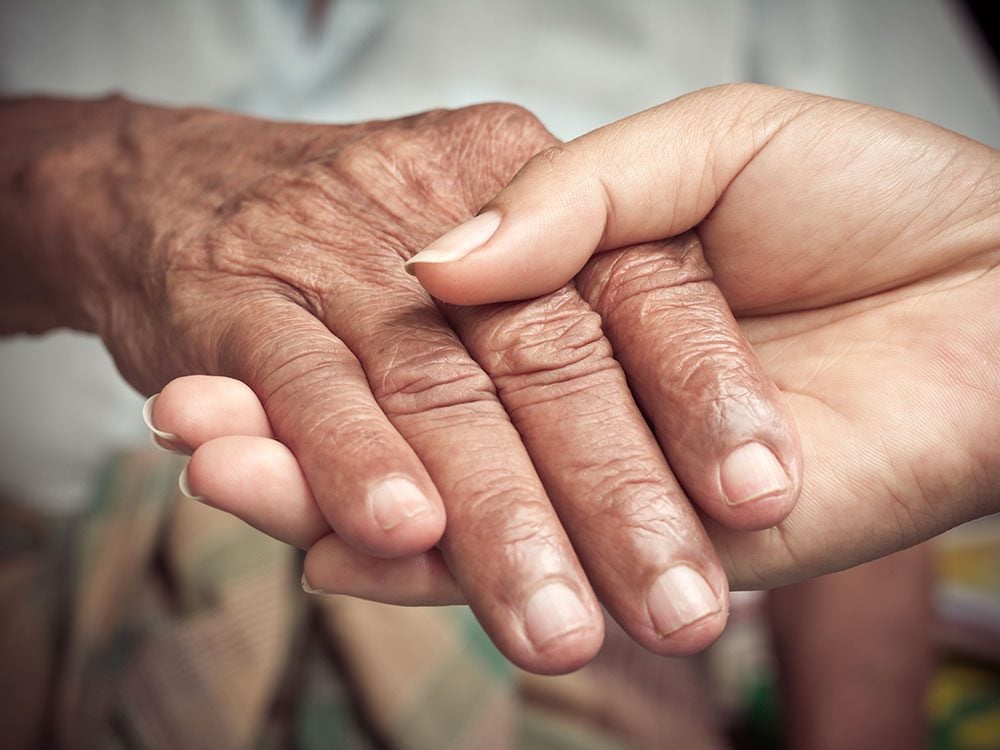
10. Ask For Help
Whether it’s changing a light bulb, carrying luggage down the stairs or navigating an icy sidewalk, there’s no need to take unnecessary risks. Be patient, swallow your pride if necessary, and ask for help when you need it. You can also try these 50 everyday habits that reduce your risk for developing dementia.
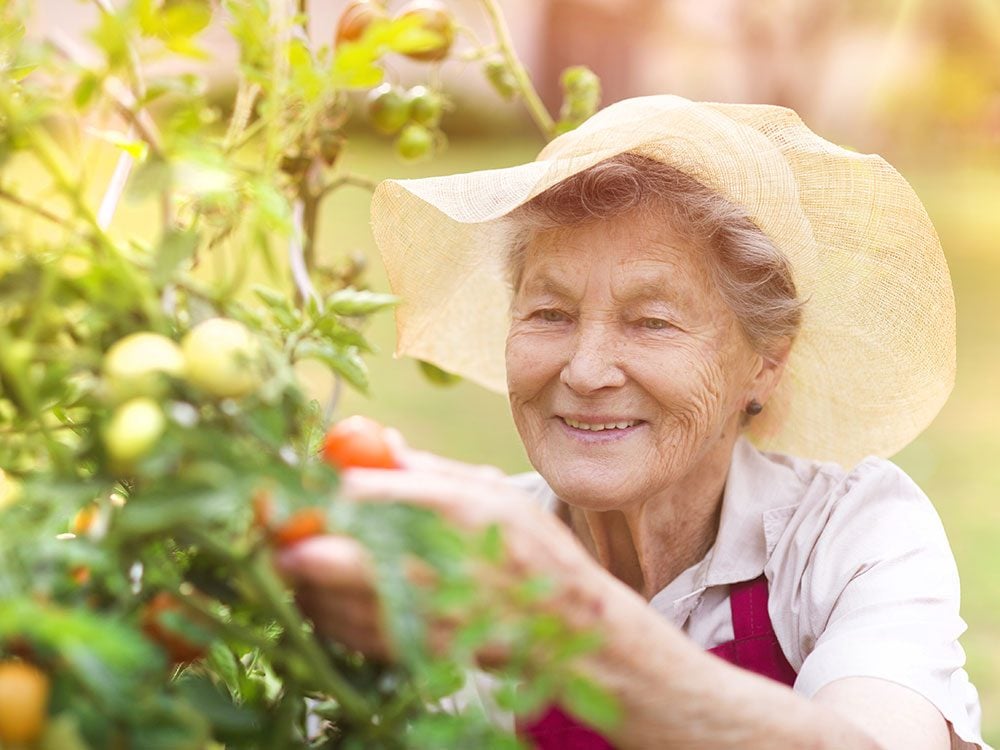
11. Prepare For the Worst
If you’ve fallen and you can’t get up on your own, time is of the essence. Studies show that if you get help within the first hour of a fall, you have a 90 per cent chance of returning home after receiving treatment at the hospital. Consider investing in one of the many types of medical alert devices now available. Medical alerts now come with automatic fall detection, so even if you’re unable to press the help button yourself, emergency responders will still home in on your exact location.
Taking a flight in the near future? Here are 10 airport tips for seniors you’ll wish you knew sooner.